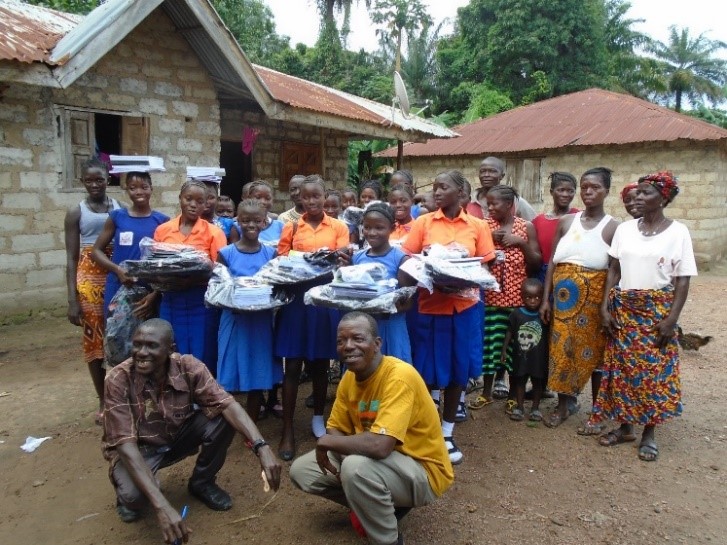
Better for Girls, Women & Youth, Better for All
The communities involved in this program feel they are better off as they reach expressed goals of empowerment and food security. Girls, women and rural youth say they feel greater hope for the future.
Girls. Families that cannot afford to educate all their children generally give preference to boys. Too many girls have been forced to drop out at 10 or 12 after completing primary school because their parents cannot afford uniforms, books and other supplies. Many soon become pregnant or are married off by their parents to ease the financial burden of supporting them. Neither the parents nor the girls are happy with these outcomes, but poverty often leaves no other choice. Distribution of school supplies and other support for girls helps many stay in school at least through junior year, during a time when they are most vulnerable to pregnancy and early marriage.
Women. Violence against women has sharply decreased since consciousness-raising instruction given to both men and women has spread through the program area. There are national laws against gender-based violence, yet historical, social and cultural practices make it possible in homes, workplaces, schools and even places of worship. Enforcement and awareness are often lacking, especially in remote rural communities, whereas in cities and large towns these services are provided by government departments, ministries and non-governmental organizations. The police have come to the villages and talked to the people about these laws, and chiefs and community elders are leading the way in this effort to change common practice.
Youth. The Youth Agriculture Project is giving young people a way to earn a living in their villages rather than having to migrate to the big cities to look for work. The area planted and the food produced and stored by the youth is a contribution to overall community food security. Youth Agriculture Project group members are planning to increase the area they have under cultivation in 2023, planting some of the grain kept in the improved storage structures within the villages. Young people have seen that there is potential for them to address a vital community need while advancing their own livelihoods in terms of incomes. Group members, their families and leaders now believe they are empowered to improve their food security through their own actions.
Sierra Leone Liberia Youth Program
Led by Presbyterian Church (U.S.A.) and Local Partner Agricultural Missions, West Africa Initiative of Liberia, Village to Village Federation (Sierra Leone)
